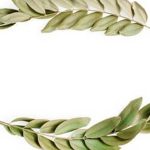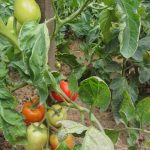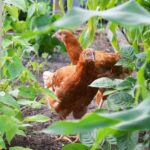When it comes to growing a successful vegetable garden, proper fertilization is key. Organic fertilizers are often preferred by gardeners due to their numerous benefits, while synthetic fertilizers pose potential risks. One popular option among organic gardeners is horse manure. This article will delve into the pros and cons of using horse manure in vegetable gardens, examining its nutritional benefits and discussing the different types of horse manure suitable for gardening.
In recent years, there has been a growing interest in organic gardening and the use of natural fertilizers, such as horse manure. Organic fertilizers offer several advantages over synthetic alternatives. They provide essential nutrients to plants while improving soil quality and fertility. Additionally, they promote biodiversity in the soil, thus creating a healthier environment for plant growth.
However, when it comes to choosing an organic fertilizer like horse manure, there are certain considerations to keep in mind. Despite its popularity among gardeners, there are potential drawbacks and challenges associated with using horse manure as a fertilizer. These factors include the presence of weed seeds or pathogens in the manure that may hinder plant growth or introduce diseases to vegetable gardens.
So, is horse manure safe for use in vegetable gardens? This article aims to explore this question further by examining the nutritional benefits of horse manure, discussing its suitability for different types of vegetables, and providing guidelines on how to properly prepare and apply horse manure to ensure safe usage. By understanding all aspects of using horse manure as a fertilizer choice, readers can make informed decisions about whether it is appropriate for their own vegetable gardens.
The Pros and Cons of Using Horse Manure in Vegetable Gardens
Horse manure is a popular choice for organic gardeners when it comes to fertilizing vegetable gardens due to its numerous advantages. Firstly, horse manure is an organic fertilizer, meaning that it does not contain any synthetic chemicals or harmful additives. This makes it an environmentally-friendly option that promotes sustainable gardening practices. Organic fertilizers like horse manure also help improve soil structure and fertility over time, making them a preferred choice for long-term garden health.
Another advantage of using horse manure in vegetable gardens is its high nutrient content. Horse manure contains essential nutrients such as nitrogen, phosphorus, and potassium, which are vital for the growth and development of plants. Additionally, horse manure also contains micronutrients like calcium and magnesium that contribute to overall plant health. By incorporating horse manure into the soil, vegetable plants have access to these crucial nutrients, leading to healthier foliage, increased yield, and better-tasting produce.
However, there are potential drawbacks and challenges associated with using horse manure in vegetable gardens that gardeners should be aware of. One challenge is the potential presence of weed seeds in fresh or improperly composted horse manure.
If not handled correctly during the preparation process, these weed seeds can germinate and compete with vegetable plants for nutrients and resources. It is crucial to properly compost or age the horse manure to ensure that any weed seeds present are killed off before application.
Another consideration is the possibility of antibiotic residues in horse manure if the horses have been treated with medication. While studies show that most antibiotics break down rapidly during composting or aging processes, it is still important to use horse manure from animals that have not recently received any medication treatments. Additionally, using excessive amounts of fresh or uncomposted horse manure can lead to nutrient imbalances in the soil and an increased risk of burning plant roots.
Examining the Nutritional Benefits of Horse Manure
Nutrients Found in Horse Manure
Horse manure is a nutrient-rich organic fertilizer that can provide several key nutrients necessary for the healthy growth of vegetable plants. One of the primary nutrients found in horse manure is nitrogen, which is crucial for promoting leafy growth and green foliage. Nitrogen helps plants produce chlorophyll, which aids in photosynthesis, making it essential for overall plant health. Additionally, horse manure contains phosphorus, an essential nutrient that supports root development and enhances flowering and fruiting.
Another important nutrient found in horse manure is potassium, which is vital for the proper functioning of plants’ metabolic processes. Potassium strengthens plant cell walls and improves disease resistance, as well as promotes the production of high-quality fruits and vegetables. In addition to these macronutrients, horse manure also contains smaller amounts of micronutrients like calcium, magnesium, and trace elements such as iron and zinc.
Improving Soil Health and Fertility
In addition to its nutrient content, horse manure can significantly improve soil health and fertility. When incorporated into the soil, horse manure helps enhance its structure by increasing its organic matter content. This results in improved soil drainage and aeration, allowing roots to grow more effectively while also preventing water-logging or drought stress.
Horse manure also enriches the soil with beneficial microorganisms like bacteria and fungi. These microorganisms aid in breaking down organic matter into simpler forms that plants can readily absorb. Furthermore, they contribute to improving soil fertility by transforming nutrients into accessible forms for plants’ uptake.
- Nitrogen: Promotes leafy growth and lush foliage
- Phosphorus: Enhances root development and flower/fruit production
- Potassium: Supports metabolic processes and strengthens plant cell walls
- Calcium, Magnesium, Iron, Zinc: Essential micronutrients for overall plant health
- Improves soil structure, drainage, and aeration
- Enriches the soil with beneficial microorganisms
Types of Horse Manure and Their Suitability for Vegetable Gardens
Differentiating Fresh, Composted, and Aged Horse Manure
When considering the types of horse manure to use in vegetable gardens, it is essential to understand the differences between fresh, composted, and aged horse manure. Each type has its own suitability and benefits for plants.
Fresh horse manure refers to the waste that has recently been produced by horses. It contains high levels of nutrients but can also harbor weed seeds and harmful pathogens. Due to its high nitrogen content, fresh manure can burn or damage plants if applied directly without proper preparation.
Composted horse manure is a more desirable option for vegetable gardens as it undergoes a decomposition process that eliminates weed seeds and reduces harmful pathogens. This process involves layering fresh horse manure with organic materials such as straw or sawdust and allowing it to decompose over time. Composting also allows beneficial microorganisms to break down the waste into rich humus-like material that is beneficial for plants.
Aged horse manure is similar to composted horse manure but has undergone an additional period of curing. This curing process allows any remaining ammonia or harmful compounds to dissipate further while also continuing the breakdown of organic matter into finer particles. Aged horse manure is often visually darker and crumbly compared to fresh or composted manure.
The Most Suitable Type for Vegetable Gardens
When it comes to using horse manure in vegetable gardens, composted or aged horse manure is generally recommended due to their reduced risks and higher benefits compared to fresh manure. The decomposition process involved in composting eliminates weed seeds and significantly reduces the presence of harmful pathogens, making it safe for use in food production areas.
Composted horse manure provides an excellent balance of nutrients while improving soil structure, water retention, and drainage. During the decomposition process, microorganisms release enzymes that break down complex organic matter into simpler forms, making the nutrients more readily available to vegetable plants. Additionally, the beneficial microorganisms present in composted manure contribute to a healthy soil ecosystem.
Aged horse manure offers similar benefits but may be preferred by some organic gardeners for its extended curing time, which allows for even further reduction of any potential contaminants. It is important to note that while aged horse manure may have a lower nutrient content compared to fresh or composted manure, it still provides valuable organic matter that improves soil structure and fertility.
By using composted or aged horse manure in vegetable gardens, gardeners can harness the benefits of this natural fertilizer while minimizing any potential risks associated with fresh manure. However, it is crucial to properly prepare and apply horse manure to ensure safe and effective usage in vegetable gardens.
How to Properly Prepare Horse Manure for Vegetable Gardens
When it comes to using horse manure as a fertilizer in your vegetable garden, proper preparation is crucial to ensure the safety and effectiveness of this organic amendment. By following a step-by-step guide and taking necessary precautions, you can effectively transform horse manure into a nutrient-rich compost that will benefit your vegetable plants.
- Collecting the manure: The first step in preparing horse manure for vegetable gardens is to collect fresh droppings from stables or pastures. It is important to avoid collecting manure that may be contaminated with medications or substances harmful to plants.
- Composting process: Once collected, the horse manure should be properly composted before being added to your vegetable garden. Composting helps break down organic matter, kill weed seeds, pathogens, and parasites, and create a stable and balanced nutrient content.
- Creating a compost pile: Start by creating a designated compost area in your garden or using a compost bin. Layer the horse manure with other organic materials such as straw, leaves, or grass clippings. This will help provide carbon-rich materials and improve airflow within the pile.
- Maintaining the compost pile: Regularly turn the pile every few weeks to ensure proper decomposition and oxygenation. The ideal temperature for decomposition ranges between 130°F and 150°F (54°C-66°C), which helps eliminate potential pathogens present in the manure.
- Curing process: After three to four months of composting, the horse manure should be fully decomposed and ready for use in your vegetable garden. The aged or cured compost will have a dark brown color, earthy smell, crumbly texture, and no recognizable traces of the initial organic matter.
Taking these steps will ensure that any potential pathogens or contaminants are eliminated during the composting process, making it safe to use in your vegetable garden. It is always advisable to wear gloves and wash hands thoroughly after handling any type of manure.
| Step | Description |
|---|---|
| 1. Collecting the manure: | Collect fresh horse manure from stables or pastures, avoiding any that may be contaminated with harmful substances. |
| 2. Composting process: | Properly compost the collected horse manure to break down organic matter and eliminate potential pathogens and weed seeds. |
| 3. Creating a compost pile: | Create a designated compost area or use a compost bin, layering the horse manure with other organic materials for a balanced nutrient content. |
| 4. Maintaining the compost pile: | Regularly turn the compost pile to ensure proper decomposition and oxygenation, maintaining an ideal temperature for pathogen elimination. |
| 5. Curing process: | After three to four months, the fully decomposed and aged compost can be used in your vegetable garden safely. |
Common Myths and Misconceptions about Horse Manure in Vegetable Gardens
Addressing Concerns about Contamination
One common myth surrounding the use of horse manure in vegetable gardens is the concern about contamination. Some gardeners worry that horse manure may contain harmful bacteria, pathogens, or weed seeds that can harm their plants or even make them sick. However, when properly composted and aged, horse manure poses minimal risk of contamination.
Composting is a natural process that breaks down organic materials, including horse manure, into stable and nutrient-rich soil amendments. During the composting process, high temperatures are reached, which effectively kills off most pathogens and weed seeds. As a result, properly composted horse manure is safe to use in vegetable gardens.
It’s important to note that fresh horse manure should never be directly applied to vegetable gardens without proper composting. Fresh manure can contain high levels of harmful bacteria and nutrients that could burn or damage plants. By following the guidelines for composting horse manure, gardeners can ensure that any potential contaminants are eliminated before application.
The Impact on Soil Quality and Vegetables’ Taste
Another misconception about using horse manure in vegetable gardens is the belief that it negatively affects the quality and taste of the vegetables grown. Some people worry that their vegetables will have an unpleasant odor or taste like manure if horse manure is used as a fertilizer.
In reality, when used correctly, horse manure can greatly improve soil quality and enhance the flavor of vegetables. Horse manure contains essential nutrients such as nitrogen (N), phosphorus (P), potassium (K), as well as organic matter that improves soil structure and fertility. These nutrients contribute to healthier plants with higher yields.
However, it’s worth noting that improper application of uncomposted or excessive amounts of fresh horse manure may lead to imbalanced nutrient levels in the soil and affect plant growth negatively. It’s crucial for gardeners to follow recommended guidelines for the quantity and frequency of applying horse manure to prevent nutrient overload and ensure optimal plant health.
Debunking the Odor Myth
There is a common misconception that using horse manure as a fertilizer will result in foul odors wafting from the garden. However, this is not necessarily true. While it’s true that fresh manure can have a strong odor due to its high nitrogen content, properly composted horse manure should not emit any unpleasant smells.
During the composting process, organic matter breaks down and stabilizes, reducing the odor significantly. By ensuring proper composting techniques such as regular turning and maintaining good airflow, gardeners can effectively mitigate any potential smells associated with horse manure.
Furthermore, incorporating composted horse manure into the soil helps improve soil structure and water retention capacity, ultimately fostering healthy root development in vegetable plants. The benefits of properly prepared and applied horse manure far outweigh any concerns about unpleasant odors when following correct composting practices.
Best Practices for Applying Horse Manure in Vegetable Gardens
Using horse manure as a fertilizer in vegetable gardens can be highly beneficial for plant growth and soil health. However, it is important to follow best practices to ensure safe and effective application. Here are some guidelines to consider when applying horse manure in vegetable gardens:
- Quantity and Frequency: It is important to use horse manure in the right quantity and at the appropriate frequency. A general rule of thumb is to apply 1 to 2 inches of composted or aged horse manure per planting area. This can be spread evenly across the garden bed or applied as a side dressing along the rows of plants. Avoid excessive application, as it can lead to nutrient imbalances or burning of plants.
- Mixing Techniques: To ensure an even distribution of nutrients, it is recommended to mix the horse manure into the top layer of soil before planting or incorporating it during the preparation phase. This can be done using a garden fork, rake, or tiller. Alternatively, you can also apply a thin layer of composted horse manure on top of the soil surface and allow natural processes to gradually incorporate it into the soil.
- Timing: The timing of applying horse manure plays an important role in its effectiveness. It is generally advisable to add horse manure during fall or winter seasons, allowing ample time for decomposition before planting in spring or summer. Fresh horse manure should be avoided as it may contain high levels of ammonia that can harm plants.
- Safety Precautions: When handling and applying horse manure, certain precautions should be taken to minimize any potential risks. Always wear gloves while working with fresh or composted manure to protect your hands from any pathogens present. Additionally, wash vegetables thoroughly before consuming them from areas where manure has been applied.
By following these best practices, you can maximize the benefits of using horse manure as a fertilizer in your vegetable garden while ensuring safe and healthy plant growth. Keep in mind that every garden is unique, and it may be beneficial to consult with local experts or experienced gardeners for specific recommendations based on your soil type, vegetable varieties, and climate conditions.
Remember, responsible and informed use of horse manure can contribute to sustainable gardening practices and help you produce healthy and nutritious vegetables for your table.
Potential Risks and Precautions when Using Horse Manure in Vegetable Gardens
When using horse manure in vegetable gardens, there are potential risks and precautions that gardeners should be aware of in order to ensure the safety of their plants and themselves. While horse manure can provide numerous benefits to soil health and fertility, it is important to take certain precautions to mitigate potential contamination risks.
One potential risk when using horse manure in vegetable gardens is the presence of harmful bacteria and pathogens. Horses can carry parasites, such as roundworms, which can contaminate the manure. These parasites have the potential to survive in the soil for extended periods of time, posing a risk of infecting plants and potentially affecting human health if consumed.
To mitigate this risk, it is recommended to compost or properly age horse manure before using it in vegetable gardens. Composting helps break down organic materials, including any potentially harmful pathogens, through a process of decomposition. This not only reduces the risk of contamination but also improves the overall quality of the manure as a fertilizer.
In addition to bacteria and parasites, another potential risk when using horse manure is the presence of weed seeds. Horses consume various types of plants, some of which may contain viable seeds that pass through their digestive system undamaged. If these seeds are introduced into vegetable gardens through fresh or improperly composted horse manure, they can result in unwanted weed growth that competes with vegetable plants for nutrients and resources.
To minimize this risk, it is important to ensure that fresh horse manure is properly composted or aged before application. The high temperatures reached during composting help kill weed seeds and reduce their viability. Furthermore, proper storage and management practices should be followed to prevent the introduction of new weed seeds into stored horse manure.
Overall, while there are potential risks associated with using horse manure in vegetable gardens, these can be effectively mitigated by following proper precautions and preparation processes. Composting or aging the manure prior to use, as well as implementing appropriate storage and management practices, can help ensure the safety of the vegetables and maintain a healthy garden environment.
| Risks | Precautions |
|---|---|
| Harmful bacteria and pathogens | – Compost or age horse manure before application
|
| Weed seeds | – Compost or age horse manure to kill weed seeds
|
Conclusion
Considering the pros and cons of using horse manure, it is evident that there are both advantages and challenges associated with its application. While horse manure provides essential nutrients like nitrogen, phosphorus, and potassium, it can also introduce weed seeds or pathogens if not properly prepared. It is crucial to compost or age the manure before using it in vegetable gardens to reduce these risks.
To properly prepare horse manure for vegetable gardens, a step-by-step process should be followed. This includes collecting fresh manure, creating a compost pile or bin, and regularly turning the compost for proper decomposition. It is important to ensure that the pile reaches a high enough temperature during decomposition to kill off any potential pathogens present in the manure.
Additional Resources and References
In conclusion, when considering whether to use horse manure in vegetable gardens, it is important to weigh the pros and cons, as well as understand the nutritional benefits and different types of horse manure available. While horse manure can be a valuable organic fertilizer that contributes to soil health and plant growth, there are also potential risks and precautions to be aware of.
To ensure safe usage of horse manure, it is recommended to compost it properly before applying it to vegetable gardens. Composting allows for the decomposition of any harmful pathogens or weed seeds present in fresh manure. By following a step-by-step guide for composting horse manure, gardeners can significantly reduce contamination risks and create a nutrient-rich compost that will benefit their plants.
Additionally, debunking common myths and misconceptions about using horse manure in vegetable gardens is crucial for making an informed decision. It is important to rely on evidence-based explanations and scientific research when addressing concerns regarding safety. By understanding the facts and dispelling misconceptions, gardeners can confidently decide whether or not to incorporate horse manure into their gardening practices.
Frequently Asked Questions
What vegetables do not like horse manure?
There are a few vegetables that generally do not thrive when horse manure is directly applied to the garden. These include root vegetables like carrots and potatoes, as well as leafy greens such as lettuce and spinach.
The high levels of nitrogen in fresh horse manure can encourage excessive foliage growth at the expense of developing healthy roots or tubers in these plants. Additionally, crops like garlic and onions may also be adversely affected by the pungent smell of fresh horse manure.
How long does horse manure need to sit before using in garden?
Horse manure needs to sit and decompose for a certain period before it can be safely used in the garden. Fresh horse manure is rich in nutrients but too hot and can burn plants due to its high ammonia content.
To eradicate any potential pathogens and allow the composting process to occur, it is recommended to let horse manure age for three to six months. This timeframe allows sufficient time for beneficial microbes to break down organic matter, tempering its temperature and making it safe for use as fertilizer.
Can I put horse manure straight on the garden?
While some types of manure require composting prior to application on gardens, horse manure can generally be used directly on the garden without much risk of burning plants or damaging soil structure. However, there are a few important considerations to keep in mind. First, avoid using fresh horse manure; aged or composted horse manure is preferable since it has gone through decomposition processes that make it safer for application.
Second, spread the horse manure evenly over the garden area instead of piling it in one spot to prevent nitrogen imbalances. Lastly, consider incorporating the horse manure into the soil or using it as a topdressing rather than placing it directly against plant stems or leaves, as close contact may increase the risk of disease transmission or rotting issues.

If you’re looking to get into vegetable gardening, or are just looking for some tips on how to make your current garden better, then you’ve come to the right place! My name is Ethel and I have been gardening for years. In this blog, I’m going to share with you some of my best tips on how to create a successful vegetable garden.





